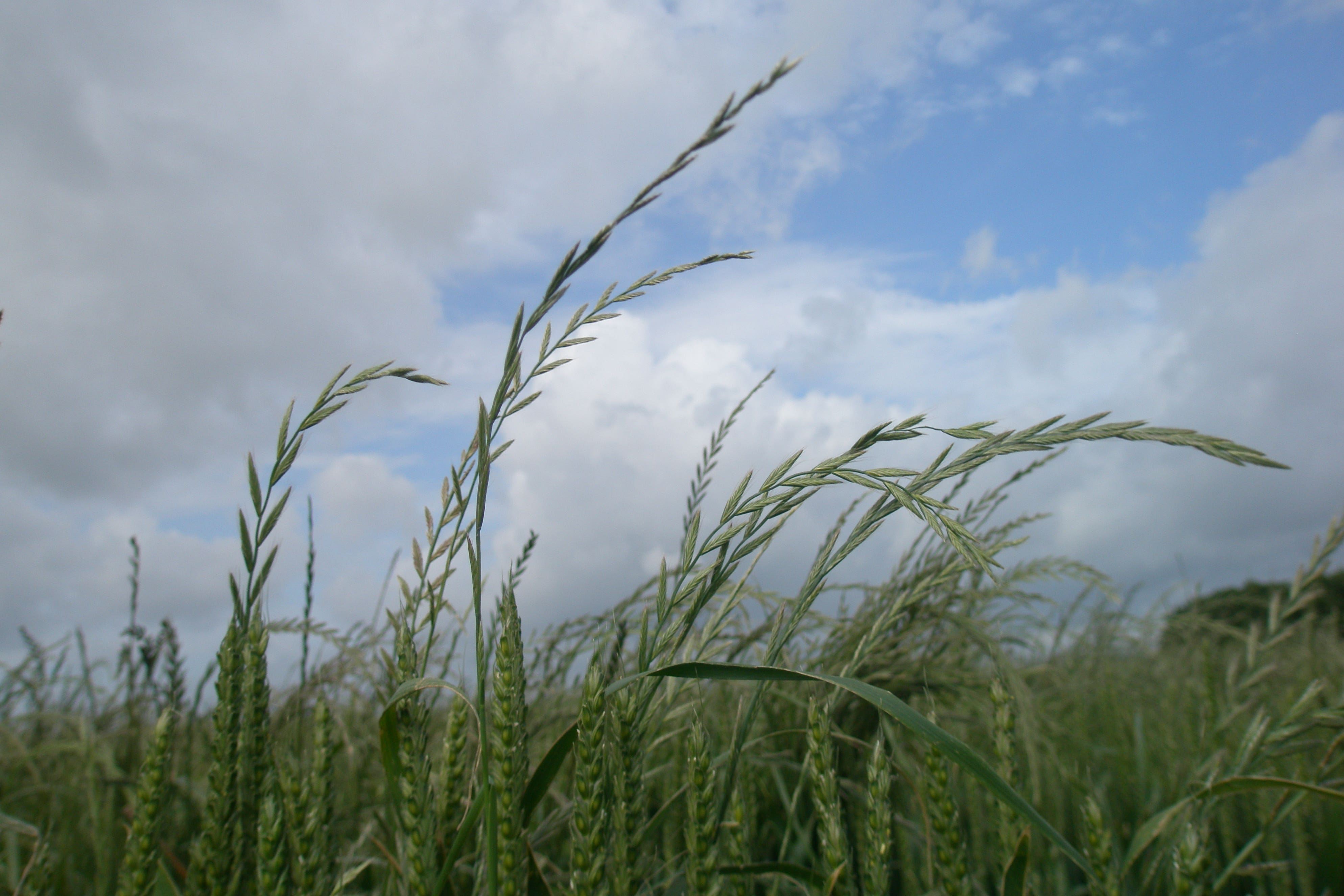Weed resistant to key herbicide glyphosate found in UK for first time
Scientists have now confirmed that the widely-used weed killer was not effective on Italian ryegrass found in multiple fields on a farm in Kent.

Your support helps us to tell the story
From reproductive rights to climate change to Big Tech, The Independent is on the ground when the story is developing. Whether it's investigating the financials of Elon Musk's pro-Trump PAC or producing our latest documentary, 'The A Word', which shines a light on the American women fighting for reproductive rights, we know how important it is to parse out the facts from the messaging.
At such a critical moment in US history, we need reporters on the ground. Your donation allows us to keep sending journalists to speak to both sides of the story.
The Independent is trusted by Americans across the entire political spectrum. And unlike many other quality news outlets, we choose not to lock Americans out of our reporting and analysis with paywalls. We believe quality journalism should be available to everyone, paid for by those who can afford it.
Your support makes all the difference.A glyphosate-resistant weed has been found in the UK for the first time in what comes as another headache for British farmers.
Glyphosate is the most effective herbicide for clearing vegetation before planting crops, but it is also used in other settings like domestic gardens, car parks, pavements, vineyards and orchards.
Scientists have now confirmed that the weed killer was not effective on Italian ryegrass found in multiple fields on a farm in Kent.
Glyphosate-resistant weeds have been detected across the world numerous times in the past, but this is the first time a case has been identified in the UK.
While unlikely to affect food prices, herbicide glyphosate resistance has a significant financial impact on individual farmers and risks stalling the transition to more regenerative farming practices.
Scientists are now briefing industry stakeholders about the development while biosecurity measures have been ramped up in the local area.
It comes as farmers begin to prepare fields to establish spring crops for 2025 against a backdrop of rising input costs, unfair supply chains, tightening margins, increasingly severe climate impacts and anger at the Government for introducing inheritance tax on farm businesses.
Weed science consultant John Cussans, who identified and confirmed the Kent case, said the resistant species is unlikely to spread because herbicide glyphosate resistance was probably caused by natural selection.
But scientists still expect to detect more cases of randomly mutated Italian ryegrass on British farms in the short term as they increase monitoring.
Mr Cussans said the impact could be “massively consequential” on a small number of farmers and their businesses, who will be forced to shift towards more costly and damaging weed control methods and face losing access to sustainability-focused subsidies.
“You might have a very small farm, which really isn’t very profitable, and an elderly parent who wants to hand that over to their children, and then glyphosate resistance is detected,” he said.
“Moving away from the science to the personal, it’s a very tough conversation, a tough experience to have.”
Glyphosate resistance could also have an impact on Britain’s shift to greener practices because regenerative farmers currently use the benign chemical to clear vegetation over more soil-damaging techniques like tilling and mechanical weeding.
“The concern is that it may affect our ability to transition our farming system,” Mr Cussans said. “That would be the broader threat.”
Dr Helen Metcalfe, Agricultural Ecologist at Rothamsted Research who has been exploring methods of farming without glyphosate, said the Kent case highlights the importance of moving away from overreliance on the herbicide as a method for controlling weeds.
The scientists recommend farmers use more integrated methods of weed management, involving less use of glyphosate, mechanical weeding, diversifying crop rotation and introducing grass lays into the rotation to make weeds less competitive with crops.
Dr Metcalfe said farmers can still use the weedkiller as “one of the tools in the toolkit, rather than as your main weed control method”.
“It’s quite key that we act now to maintain the safe stewardship of this chemical, and this is kind of our warning signs to start doing that,” she said.
In recent years, scientists had ramped up resistance monitoring and seed sample testing in recent years after identifying Italian ryegrass as a high risk species for glyphosate resistance.
While farmers have been using glyphosate in the UK since the 1970s, the risk has grown due to the increase in the species, increased reliance on glyphosate, few alternative herbicides, and farmers cultivating their fields less to maintain soil health and other benefits.
Scientists have previously estimated that the total loss of herbicide control against another weed, black-grass, would cost £1 billion globally each year, and at £0.4 billion in England.
Paul Neve, professor of crop science, University of Copenhagen, said Italian ryegrass resistance “hasn’t exploded into a huge problem” since the first cases in Australia in the 1990s.
“The reality is that, whilst this is a very real serious economic problem, it’s been out there for 30 years, and there’s still bread on the shelves in Australia, and still a huge export of wheat from Australia,” he said.